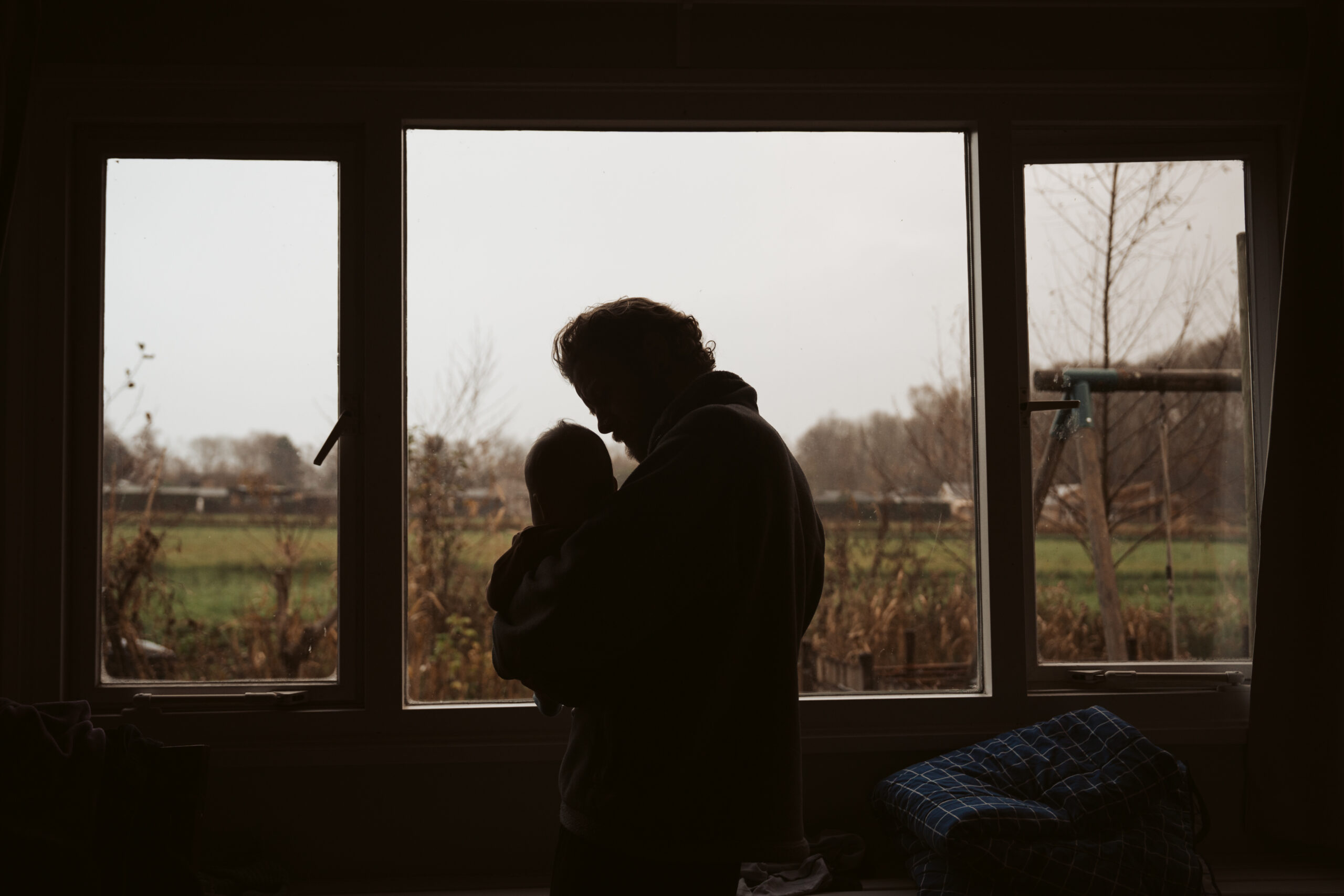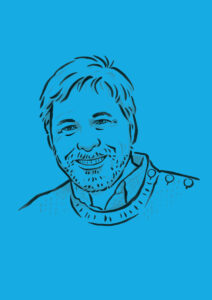“I learned a lot about trauma through parenting”
Interview with Bessel van der Kolk, Author of The Body Keeps the Score
Interview with Bessel van der Kolk, Author of The Body Keeps the Score
 Photo: Isolde Woudstra
Photo: Isolde Woudstra
Bessel van der Kolk, psychiatrist and author of the bestselling book The Body Keeps the Score (2014), has devoted his career to understanding how children and adults adapt to traumatic experiences. For the past four decades, he has been studying how we experience trauma differently as we age, how trauma can change the brain, and how it prohibits healthy connections. In conversation with Elissa Strauss, he talks about the intersection of early parenthood and trauma, and how secure relationships can be a powerful source of protection during difficult circumstances.

Bessel van der Kolk
I had babies at the same time I got interested in trauma, and I noticed how the Vietnam veterans I was working with at the time behaved very much like my toddlers. They would throw temper tantrums, have trouble sleeping, and blow up.
I was intrigued. How come my veterans were acting like 2-year-olds? Why were their brains stuck at the 2-year-old level? And what was the guarantee that when my children grew up they’d be able to regulate themselves any better?
I learned a lot about trauma through parenting particularly because one of my children is neuroatypical and I know how much work it takes to calm that system down. But it is natural for all children to be dysregulated, and it’s the parents’ job to take care of it.
The security of a child’s attachment to a caregiver is the most important thing, especially in their first years of life. So as a child even if terrible things happen to you, if you feel like your parents are really there for you, the trauma doesn’t have the same impact.
Even in high-conflict situations, children can do well as long as they feel that their parents know what they are doing and are able to stay calm. As long as a parent can physically regulate, so can their child. But if a parent becomes panicked, children pick this up because their physiology is really attuned to their caregivers.
So let’s say you live in a housing project in the USA, or in Gaza, and there is shooting outside. If your parents manage to stay calm, then you are going to feel that the world is safe. But your parents are very likely to freak out because of what is happening.
A parent can become a source of stress for the child.
Having a secure base themselves helps, which means being in relationship with other people who can help regulate them.
“If you feel like your parents are really there for you, the trauma doesn’t have the same impact.”
In terms of interventions, we have found that both yoga and neurofeedback help parents living through extreme situations to regulate themselves. With neurofeedback, we can use a computer to measure how agitated their brain gets, and help them become more calm and focused, which will make them better able to take care of their children.
Parents can benefit when we help their children regulate, as well. As the saying goes, “Insanity is hereditary, you get it from your children.” So if you are a parent with a very agitated child, you will do better if the child is doing better, too.
As such, we can help parents by helping them with their parenting. We have interventions in which we will put a microphone in their ear and give them instructions on how to physically engage with their children. Things like: “Why don’t you touch the child on the shoulder?” or: “Why don’t you move away a little bit?” You can really coach people to be more physically attuned to their children.
Although when a parent has prior trauma this is all much harder for them. Learning to become attuned gives parents and their kids the visceral experience of reciprocity and harmony. When we play together, we feel physically attuned and experience a sense of connection and joy – like when a parent tickles their infant’s tummy and they share a happy giggle. As human contact and attunement are the wellspring of physiological self-regulation, attuned parenting is also linked to improved emotional regulation in parents.
“Learning to become attuned gives parents and their kids the visceral experience of reciprocity and harmony.”
There are subtle, interactional patterns that emerge in situations like this. Let’s say a parent has been sexually abused. The issue of sexuality or even just intimacy might disturb them and they may shut themselves down.
And whenever there’s any issue with intimacy, the children can pick that up. Not cognitively, but by mirroring – the child learns to avoid intimacy too. Overall, a child with a traumatised parent who has shut themselves down may get the feeling that “my caregiver doesn’t really like me”, that “there must be something wrong with me”, or “there must be some reason my caregiver won’t pay attention to me”. A baby, for example, might become excessively upset and demanding or, conversely, more quiet and withdrawn. They will think they must have done something bad to make this happen. It then shapes their brain and organs to predict the future, because our brains adjust themselves to the experiences we have.
Typically, the way trauma manifests is by the person becoming agitated or shut down in response to sensory stimuli. Everyone I know who escaped the World Trade Center on 9/11 tends to be sensitive to sounds. You may become all uptight and agitated, and these are automatic reactions. The core of trauma research is you react to current situations that aren’t objectively dangerous as if your life is in danger.
There can be a big difference. When a collective trauma takes place, there is often a natural instinct among those experiencing it to move closer together. Things like war and natural disasters can be something that gives us meaning, inspires us to build community, and helps people feel closer and stick together. In a way, it can bring out the best in people.
On the other hand, family trauma tends to be filled with secrets and shame and is therefore more dangerous. And if it is your caregiver who is the source of trauma, you might pretend it isn’t happening when you are around others. But of course, something is happening. So something like 9/11 can be less traumatic than something that took place within your caregiving system, because it is connective and not a source of shame.
In some ways, everyone experiences the resurfacing of old traumas and/or internal conflicts after becoming a parent. Having a child is a very profound experience that really brings up all the things about our past. Not so much in terms of memory, but in
terms of reactions.
And having a new creature in your life completely changes everything. You cannot go on with life as it always has been, because suddenly this little creature is totally dependent on you, and it may give rise to all kinds of issues about being inadequate or being totally beleaguered and overwhelmed.
Being a new parent is a really tough job, and if you have a history of abuse, if you have grown up in danger or with dysfunctional parents, it can be much harder to make personal connections with people who can provide support. This becomes particularly relevant for those who lived through war- type situations, when they don’t know who to trust. Overall, the more trauma you have in your life, the harder it can be to know who you can trust to help you out with caring for your child.
“Having a child is a very profound experience that really brings up all the things about our past.”
Also, if you have a history of trauma, the crying of your child may be much more upsetting and you may become extremely triggered by the neediness of a small baby. Sometimes, that’s how family violence also starts. A traumatised parent who is unable to comfort and calm a child might turn to something else.
What really makes a difference is active support in parenting, whether from a grandparent or neighbour or someone else who can take over when it becomes too much. We also need to help new parents feel as though they can trust others to help them and build those connections.
There are programmes that do all this at once. They don’t just teach parents and the people around them how to play with their children, hold their children, and be attuned to their children. They also help the parents to support other parents, at the same time as they learn how to support their children.
With the right resources and support, and through safe, attuned relationships with their children, parents can rewrite the narratives of their own childhoods, fostering healing in themselves while nurturing growth in their children.
All references can be found in the PDF version of this article.
See how we use your personal data by reading our privacy statement.
This information is for research purposes and will not be added to our mailing list or used to send you unsolicited mail unless you opt-in.
See how we use your personal data by reading our privacy statement.